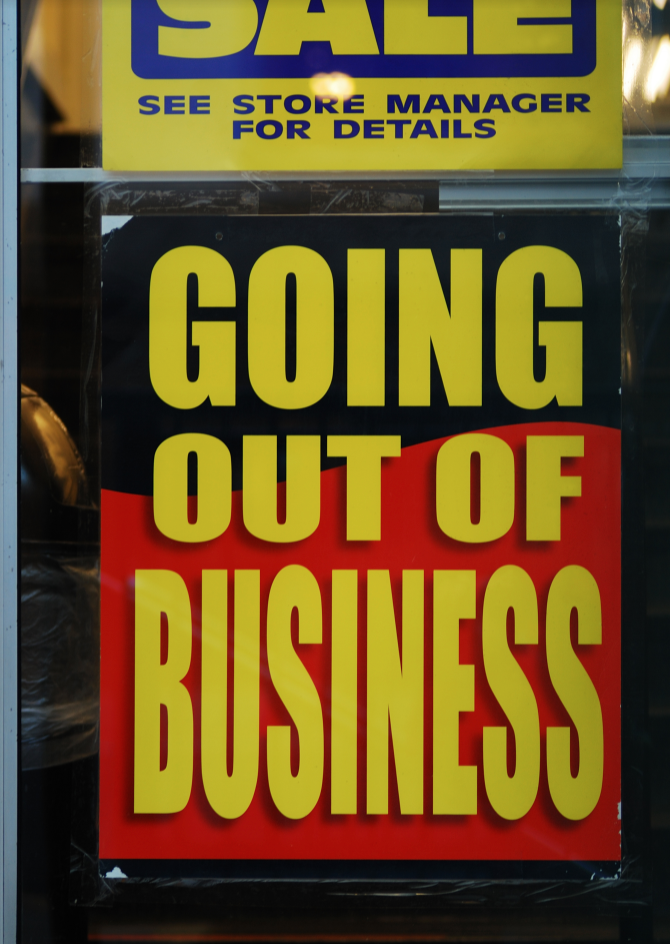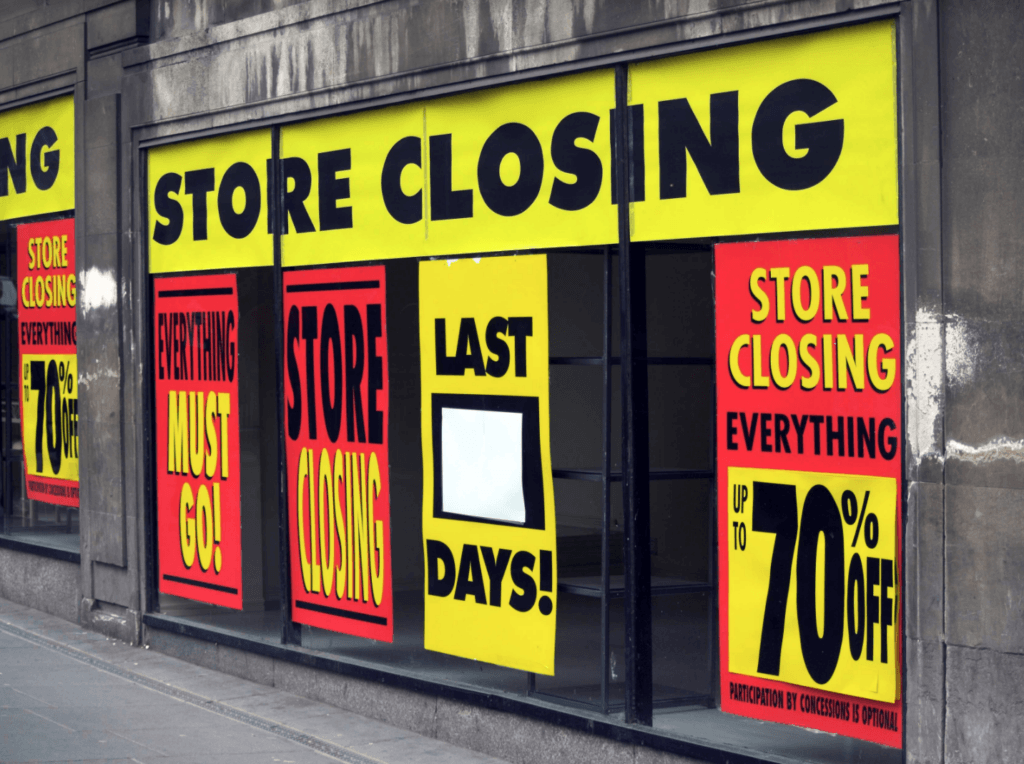15 Reasons to Vote “No” on Proposition 15
California Split Roll Initiative 2020
The effects of COVID-19 have had a drastic negative impact on California businesses, jobs and the economy. The Independent Restaurant Coalition estimates that up to 85% of independent restaurants may close permanently by the end of the pandemic.
An analysis performed by the Stanford Institute for Economic Policy determined that between February and April 2020, there was a 41% decrease in Black-owned businesses, a 32% decrease in Latino-owned businesses, and a 26% decrease in Asian-owned businesses.
Many of the businesses remaining are struggling to survive. The last thing needed by California businesses that are trying to stay afloat is to be thrown an anchor in the form of a $12 billion annual tax increase, which is exactly what Proposition 15 will do.
Proposition 15, the “California Schools and Local Community Funding Act of 2020,” which is commonly referred to as the Split Roll Initiative, will be on the November 3, 2020 California ballot. Proposition 15 would amend Proposition 13, as it relates to commercial, industrial and office properties.
Pursuant to Proposition 13, the “base year value” or assessed value of real property is its current market value (i.e., the acquisition value or the purchase price) on the date of any change in ownership or if there is new construction. California taxes real property at 1% of its assessed value. Proposition 13 limits annual increases in the assessed value by an inflation factor not to exceed 2%.
If approved by voters, Proposition 15 would “split” the tax roll. Proposition 15 subjects all California “commercial and industrial real property” to reassessment to their “full cash value,” as determined by the County Assessors, no less frequently than every three years. The reassessment would be phased-in over several years commencing with fiscal year 2022-23.
Among the reasons, in reverse order, to oppose and vote “NO” on Proposition 15 are:
- Subjective Standard and Uncertainty. The assessed value of commercial property would be determined by the subjective opinion of the County Assessor, rather than the objective standard of the purchase price. This would introduce further uncertainty in the already battered commercial real estate market.
- Huge Tax Increase. It is estimated Proposition 15 will increase property taxes by approximately $12 billion annually, the largest tax increase in California history. Proposition 15 will increase the cost of doing business in California, further reduce the competitiveness of California businesses, and accelerate the exodus of businesses from California.
- Big Government. County Assessors have advised they are understaffed and do not have the approximate 900 additional qualified commercial real estate appraisers necessary to implement Proposition 15 and reassess all commercial-industrial property in California. The County Assessors have estimated it will cost at least $500 million to implement Proposition 15.
- No Accountability. Once the County Assessor determines the full cash value of a property, the owner is required to immediately commence paying the property taxes determined by the reassessment of the property.
- No Due Process. Proposition 15 restricts the ability of a property owner to contest the County Assessor’s determination of the full cash value of a property. Proposition 15 provides there is to be no time limit as to when a property owner’s appeal must be decided by the County Assessment Appeals Board. (Jeffrey Prang, the L.A. County Assessor, stated at a Board of Equalization meeting in September 2019 that there are already approximately 27,000 outstanding property tax appeals in L.A. County with some dating back to 2008.) There are 248,109 commercial properties in L.A. County alone that would be subject to reassessment.
The California Assessors’ Association White Paper on a ‘Generic’ Split Roll notes, if Proposition 15 becomes law, Assessment Appeals will increase dramatically and the “number and complexity of appeals . . . will likely result in a major backlog requiring multiple years to resolve.” This, all while the property owner is required to pay the property taxes based upon the full cash value of the property, as unilaterally determined by the County Assessor
- Higher Prices for Consumers. Proposition 15 will result in increased prices consumers will pay as property owners will pass through to their tenants the increase in property taxes. Approximately 80% of commercial leases in California are “triple net.” Pursuant to a triple net lease, the tenant is required to reimburse the landlord for the tenant’s prorata share of property taxes, which cost will be passed on to consumers.
- Lost Jobs. The International Council of Shopping Centers estimates Proposition 15 will lead to over 120,000 lost jobs in California, at the time of record unemployment.
- No Spending Controls. There is no control as to how the proceeds from Proposition 15 are to be spent, except 40% is to go to schools and 60% to local governments. Opponents of Proposition 15 assert the increased taxes will be used to backfill the huge unfunded pensions of state and local governmental employees. Opponents allege this is the reason the California Federation of Teachers and the American Federation of State, County and Municipal Employees are major backers and proponent of Proposition 15.
- Depressed Real Estate Values. Proposition 15 will increase the cost of doing business and the total occupancy cost of commercial property, thereby reducing net cash flow and property values.
- Concentration of Wealth. Proposition 15 will force smaller mom and pop businesses to sell their properties as a result of the inability to pay the increased property tax burden.
- Trial Lawyer’s Dream. Larry Stone, the Santa Clara County Assessor, stated at a Board of Equalization meeting in September 2019, “The split roll is an invitation to adjudicate disputes in court rather that than at the Assessment Appeals Board. I really think the split roll is a litigation lawyer’s dream.”
- Dubious Claims. The California Hispanic Chamber of Commerce filed a lawsuit alleging the proponents of Proposition 15 made “wildly dubious claims” and factually incorrect statements. It is alleged the misleading statements include “exempts all residential properties,” “cuts taxes for small businesses,” and “gives local communities desperately needed resources.”
- Hurts Small and Minority-Owned Businesses. In a letter to Mark Zuckerberg who is one of the proponents of Proposition 15, among others, the NAACP, the California Black Chamber of Commerce, the California Hispanic Chamber of Commerce and the CalAsian Chamber of Commerce stated Proposition 15 will “substantially raise taxes on small, minority-owned and small businesses throughout California,” which is the last thing they need.
- Increases Gentrification. In the letter to Mark Zuckerberg, it was also noted Proposition 15 will force small, minority, women and immigrant-owned businesses out of communities where they cannot afford to pay the increased property taxes.
- Homeowners Are Next. If Proposition 15 is passed, the next step will be to eliminate the residential property protections of Proposition 13 resulting in an additional tax burden on both residential tenants and owners.
To stop this dangerous proposition that will negatively impact all Californians, please donate and join the opposition at https://noonprop15.org/
Related Posts:
Proposition 15 The “Split Roll” Initiative Deep Dive – Pinch Your Nose, It Stinks
California Senate Bill 939 Dead for Now; Split Roll Initiative Challenge Looms
California Senate Bill 939 Dead for Now; Split Roll Initiative Challenge Looms
____________________________________________________________________
William B. Brinckloe, Jr. of TransActionLaw is a Martindale-Hubbell AV-Rated lawyer in Irvine, California who practices in the areas of commercial real estate and business transactions. If you have any questions regarding Proposition 15 or require the services of an experienced commercial real estate and business transactional lawyer in California, please email Bill at wbb@TransActionLaw.com or call him at (949) 475-6993.








